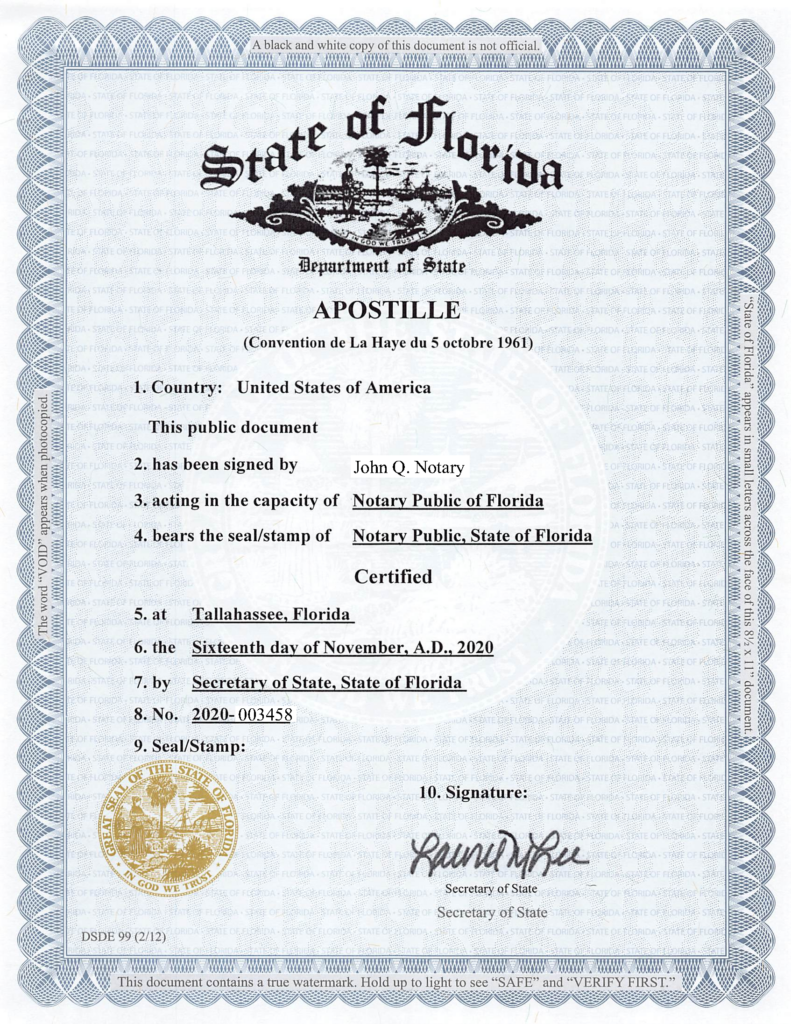Structured Apostille Process in Houston TX
Structured Apostille Process in Houston TX
Blog Article
Delving Into the Reasons Behind the Necessary Demand of Apostille Certification for Legal Papers
In the world of lawful documentation, the obligatory demand of apostille qualification has actually become a vital facet that considerably impacts the credibility and acknowledgment of lawful documents on an international scale. Understanding the rationale behind this requirement entails diving into the complex web of legal complexities, historic criteria, and global agreements that emphasize the relevance of apostille accreditation in today's interconnected world. By exploring the underlying factors behind this extensive requirement, a more clear photo emerges of why this apparently administrative process holds such tremendous relevance for individuals, federal governments, and companies alike.
Historic Development of Apostille Certification
How did the idea of apostille accreditation advance over time to become a vital component of international file recognition? The need for a simplified technique of confirming documents for use throughout boundaries came to be apparent as worldwide profession and traveling increased.
At first embraced by a couple of European countries, the Apostille Convention gradually acquired worldwide acceptance because of its performance and performance in validating the authenticity of main documents. Over the years, the convention's reach broadened as more nations joined, acknowledging the apostille as a globally approved kind of record verification. Today, apostille qualification has actually become a common requirement for confirming legal documents in worldwide purchases, making certain smooth interaction and lawful procedures between nations.
Simplifying International Paper Legalisation
The streamlining of international paper legalisation procedures has dramatically enhanced effectiveness in cross-border purchases. Streamlining the process of legalizing papers for global use has ended up being critical in helping with swift and smooth purchases in between countries. Among the vital mechanisms that have added to this simplification is the adoption of the Apostille Convention, which offers a standard technique for validating the credibility of documents across participating nations.
By adhering to the Apostille demands, countries agree to acknowledge each various other's public papers as legitimate without the demand for more legalisation. This removes the extensive and often cumbersome process of multiple authentications by various authorities, conserving time and sources for organizations and people participated in worldwide activities.

Ensuring File Authenticity and Legitimacy
To make sure the authenticity and validity of lawful papers in international purchases, rigid verification procedures are crucial - Houston Apostille. Lawful papers play an important function in cross-border dealings, and ensuring their authenticity is vital to support the integrity of such deals. By requiring apostille qualification for legal documents, authorities aim to confirm the origin of records and confirm the trademarks of individuals entailed. This process aids avoid fraudulence, misrepresentation, and various other malpractices that might threaten worldwide arrangements or legal process.
Furthermore, validating the credibility of legal files with apostille qualification boosts trust and confidence amongst events participating in international transactions. It offers guarantee that the records offered are genuine and legally binding, thus minimizing the dangers linked with fraudulent activities. Additionally, making sure paper legitimacy via apostille qualification streamlines the legalisation procedure, making it extra dependable and effective for individuals and organizations conducting business throughout boundaries. Inevitably, by promoting rigorous confirmation requirements, apostille accreditation adds to a more transparent and secure global lawful framework.

Promoting Cross-Border Legal Acknowledgment
In the world of worldwide deals, the apostille qualification not only guarantees the authenticity and credibility of lawful papers but also plays a critical role in assisting in cross-border legal acknowledgment (Houston Apostille). When legal papers birth an apostille certification, they are conveniently accepted by international authorities without the need for further confirmation. This structured process speeds up the recognition of records in different nations, promoting efficiency and minimizing bureaucratic difficulties in legal issues that transcend nationwide boundaries
Promoting cross-border lawful recognition through apostille accreditation promotes trust fund and self-confidence in the authenticity of documents exchanged between countries. By sticking to the requirements established forth by the Apostille Convention, countries concur to recognize the apostille seals affixed to files from other member nations, therefore streamlining the procedure of lawful acknowledgment throughout boundaries.
Conformity With International Treaty Standards
Compliance with global treaty standards is critical for guaranteeing the uniform application of legal laws throughout getting involved countries. The Apostille Convention, Visit Your URL developed in 1961, details the demands for the acceptance of public files among member countries. By adhering home to the standards established forth in this treaty, countries devote to identifying the legitimacy of each other's authorities records without the demand for more verification - Houston Apostille. This shared approval improves the process of cross-border record recognition, promoting efficiency and lowering administrative obstacles.
The Apostille accreditation, as mandated by the treaty, acts as a guarantee of credibility for documents such as birth certifications, marriage licenses, court judgments, and notarized deeds. This standard method aids avoid fraud and makes sure that legal documents originating from one participant country are easily accepted in one more. By conforming with global treaty requirements, countries demonstrate their dedication to upholding the principles of openness, count on, and participation in legal matters on an international scale.
Final Thought

In the realm of legal paperwork, the required requirement of apostille certification has ended up being a crucial facet that significantly impacts the credibility and acknowledgment of legal papers on an international range. Today, apostille qualification has actually become a conventional need for confirming lawful documents in global purchases, ensuring smooth communication and legal proceedings between nations.
Furthermore, confirming the authenticity of lawful papers via apostille qualification boosts trust fund and self-confidence amongst parties engaging in international deals.In the world of global purchases, the apostille qualification not just makes sure the credibility and credibility of legal files but also plays a critical role in assisting in cross-border additional resources lawful acknowledgment. By adhering to the criteria set forth by the Apostille Convention, countries concur to honor the apostille seals affixed to papers from other member countries, hence streamlining the process of lawful acknowledgment across borders.
Report this page